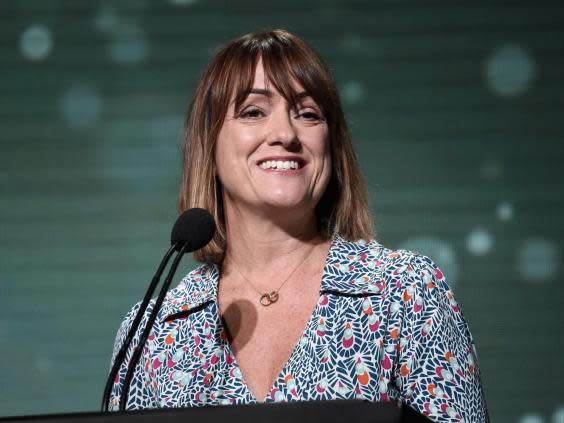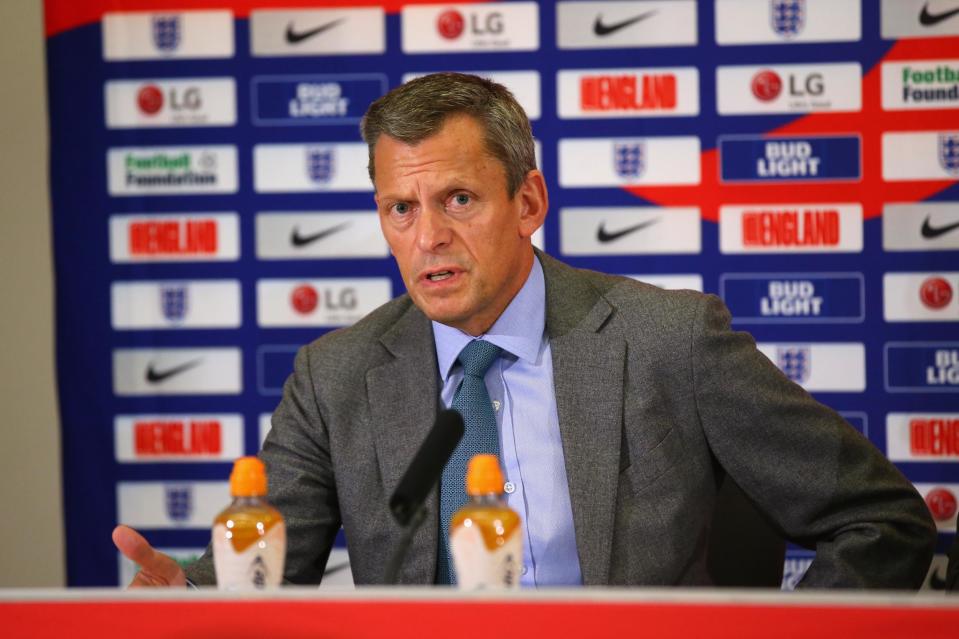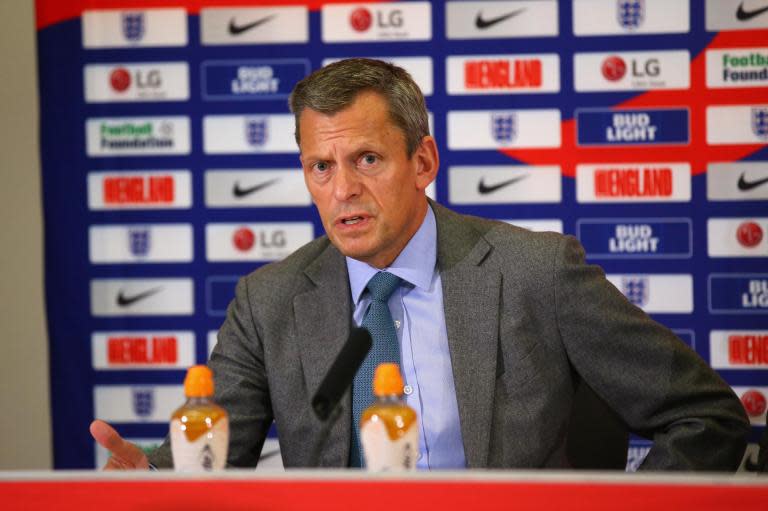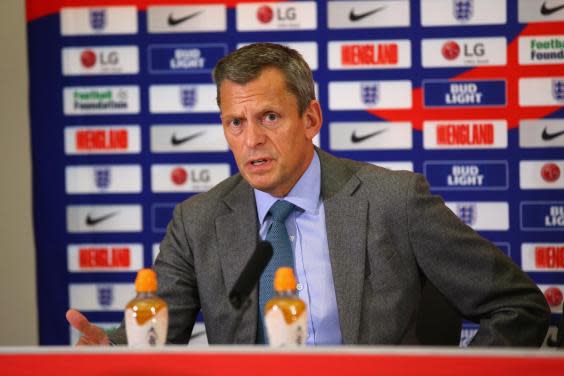FA ‘negotiating in public’ with post-Brexit proposal to limit Premier League clubs to 12 foreign players
A Football Association plan to dramatically reduce the number of overseas players in English football after Brexit has been described by a source close to the debate as "negotiating in public".
According to a report in The Times on Tuesday, the FA wants to limit clubs to just 12 foreign players in their 25-man squads, five fewer than the current rule. The idea is contained in an FA position paper that has been circulated around the game's main stakeholders and will be discussed again at a meeting of Premier League club chairmen on Thursday.
With the United Kingdom scheduled to leave the European Union next year, players from countries in the EU and European Economic Area (EEA) will no longer have an automatic right to work here and will need work permits to do so, as non-EU players require now.
READ MORE: Best FM wonderkids for any budget
English-qualified players currently make up only 30 percent of match day squads in the Premier League - a far smaller percentage for domestic talent than in other major leagues - and the FA sees Brexit as an opportunity to address this.
Premier League and English Football League clubs, however, are strongly against any measure that will restrict their ability to recruit the best players from abroad, and some clubs even see Brexit as an opportunity to make this easier.
Under today's rules, clubs must have eight home-grown players in their 25-man squads but these players do not necessarily have to be English; like Cesc Fabregas, for example, they just need to have spent three seasons with an English club before they were 21.
Of the remaining 17 players, anyone from outside the EU or EEA needs a Governing Body Endorsement (GBE) from the FA to obtain a Home Office work permit.
Intended to ensure that only the very best can come, GBEs are given to those who have played a sufficient number of games for their national sides. For teams ranked in FIFA's top 10, it is 30% of games over the last two years, for teams ranked 31-50 it is 75%. For players under 21, the period is reduced to one year.
But even this is not the end of it as teams can appeal against GBE rejections, with exceptions granted for players who command big transfer fees or earn high wages, as this is deemed to be another indicator of quality.
Club chairmen such as Crystal Palace's Steve Parish have already said they would like to streamline this system after Brexit to make it easier, and cheaper, to sign talent from around the world.
Other club bosses, such as Burnley's Mike Garlick, have expressed concerns that any attempt to tighten restrictions on signing overseas players will disproportionately hurt smaller teams, as they are more likely to be buying cheaper players who struggle to meet the work permit criteria.

Susanna Dinnage was named the Premier League's new CEO on Tuesday (Getty)
For its part, the FA has said talks on the post-Brexit arrangements are ongoing and it is "continuing to work with the Premier League, EFL and a range of government departments...during this consultation period."
A government spokesman issued a similar statement, saying it "recognised the need for sports, including football, to continue to access talent from the EU and globally and are in discussions with sports bodies about this".
The Premier League said it was in the same boat as "many other organisations dependent on a combination of domestic and international talent" and was waiting to "better understand what the political and regulatory landscape will be" after Brexit.
It added: "Access to talented footballers from across Europe has played a key part in the growth of the Premier League, with match attendance and global interest increasing significantly as high quality foreign players have taken their place in the competition with and against the best British and Irish players."
Several sources close to the discussions said that they were cordial, but added there was a clear divide between the FA and the clubs which has not been helped by the overall uncertainty related to Brexit and the fact that the Premier League has only just appointed a replacement, television executive Susanna Dinnage, for its long-standing boss Richard Scudamore.
Also expected this week is a clearer timetable for when the Premier League will introduce Video Assistant Referees.
Now widely used around by leagues around the world, as well as at this summer's World Cup, an update on the league's VAR trials is on the agenda for Thursday's meeting and it is possible that chairmen will vote on whether to confirm the system's roll out next season or not.



